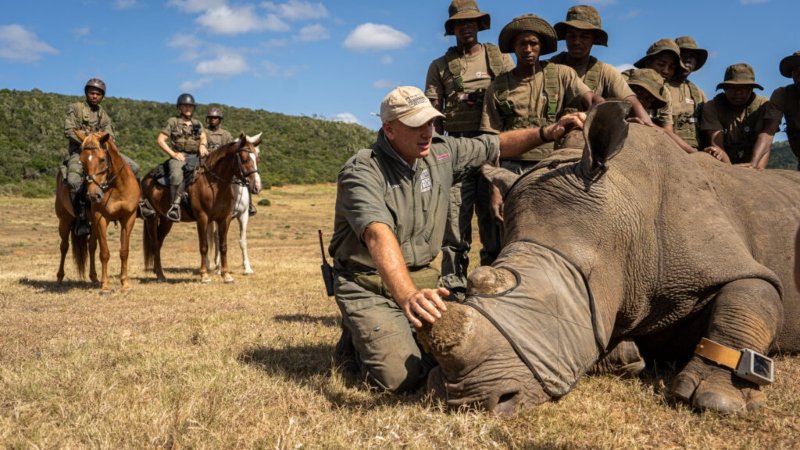Across Africa’s vast savannahs, dense rainforests, and remote reserves, an invisible war is being fought, not between nations, but between those who protect wildlife and those who seek to destroy it. At the heart of this battle stand the African rangers, men and women who form the first line of defence against poaching. Their mission: to safeguard endangered species like elephants, rhinos, and pangolins from criminal networks driven by greed and global demand.
A Day on the Frontline
For many rangers, every sunrise begins the same way – a patrol into the unknown. They move quietly through unforgiving terrain, scanning for footprints, traps, and the telltale signs of human intrusion. Their days can stretch into nights, sleeping under the stars or in makeshift camps, all while staying alert to danger.
Beyond the obvious threats of armed poachers, they face dehydration, heat exhaustion, and disease. Many operate in regions where medical support is hours away, and backup may never come. Yet, they continue — not for glory, but for duty.
Rangers are not just soldiers; they are guides, trackers, medics, and educators. They build relationships with local communities, teaching sustainable coexistence and turning former poachers into allies. But even with growing public support, their work remains perilous.
Danger on the Job
The statistics tell a grim story. According to the International Ranger Federation, more than 100 rangers are killed every year, many by armed poachers, others by wild animals or harsh conditions. Between 2012 and 2023, over 1,200 rangers lost their lives in the line of duty. In parts of Central and East Africa, anti-poaching patrols routinely come under fire from organised crime groups involved in trafficking ivory, rhino horn, and bushmeat.
These confrontations are often unequal. Poachers carry military-grade weapons and have the backing of lucrative international markets. Rangers, meanwhile, often operate with outdated equipment and limited funding. It’s not uncommon for them to go months without new boots, radios, or even fuel for vehicles. Despite the risks, morale remains strong – driven by a shared belief that protecting wildlife is a cause worth dying for.
Technology: A New Weapon in the Fight
In recent years, technology has become a lifeline for anti-poaching units in Africa. Drones now patrol skies where human eyes cannot reach, providing real-time surveillance of large territories. GPS tracking collars monitor endangered animals, alerting teams to suspicious movements or possible threats. Body cameras not only improve transparency and safety but also provide crucial evidence when poachers are apprehended.
Some parks, like Kenya’s Ol Pejeta Conservancy, use AI-powered systems that combine satellite data, camera traps, and acoustic sensors to predict poaching risks before they happen. In South Africa, thermal imaging helps night patrols detect intruders long before contact. While these tools can’t replace the bravery of the rangers, they have undoubtedly saved lives – both human and animal.
The Human Cost – and the Need for Support
Behind every ranger is a family waiting for their safe return. The emotional toll is immense: months away from home, living under constant threat, and watching comrades fall in the line of duty. Many rangers earn modest wages despite their high-risk work. Their courage often goes unseen by the world they protect.
Sustainable conservation depends on investment in ranger training, welfare, and mental health. International funding, public donations, and NGO support play a crucial role in keeping these programs alive. Organisations like The Thin Green Line Foundation and African Parks Network provide not just equipment but also life insurance, trauma care, and education for the families of fallen rangers.
Why They Keep Going
Ask any ranger why they do it, and the answers echo across the continent: “Because if we don’t, who will?” These are the conservation heroes whose work ensures future generations can still see elephants roam and rhinos graze freely—their courage bridges the gap between extinction and survival – a human shield against greed and destruction.
In the end, the fight against poaching is not just about saving animals. It’s about defending the soul of Africa – its people, its landscapes, and its promise for the future. Supporting rangers means standing with those who risk everything to protect what cannot protect itself. Visit World Mapquest for more details.
